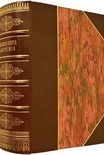Coconut Chaos by Diana Souhami (best ereader for pdf TXT) 📗

- Author: Diana Souhami
Book online «Coconut Chaos by Diana Souhami (best ereader for pdf TXT) 📗». Author Diana Souhami
I supposed that many of those on the Bounty had sailed to the South Seas to escape the exigencies of home: debts, disaffected wives and girlfriends, paranoid mothers, failures and disappointments.
In bed that night Verity turned her back, so letting me know we were not to be entwined in sleep or the familiarity of what I’d thought to be love. I took her to be saying: Go your way, make your stupid journey and leave me free to live my life.
I lay awake and thought about forgetfulness. If I went away I’d forget Verity. She’d shift to a recess of my mind, a trace element, like most of the books I’d ever read, like most of the lovers I’d ever had, a residual memory, a vague disquiet. Things had become distant between us, so why should I stay? I thought of my mother’s insane forgetfulness, confusion and strange inventions. And then I remembered with pain a night of Verity’s face so close to mine on the pillow, our kisses like cool clear water, our whispered caresses, the call of barn owls in the moonlight, but not the owls in the barn at Mill Cottage – another barn another pillow. I felt regretful about separating from her and spooned her body to me in an echo of our familiar loving ways.
The ferry to Greenwich from Bankside was a trippers’ bus, a soulless glass-encased catamaran. A guide gave a worn-out commentary: ‘To your left Christopher Wren’s monument shaped like a candle. To your right HMS Belfast. That’s the Anchor public house. That’s the Globe Theatre.’ I wished Verity was with me and that we’d packed egg sandwiches and a Thermos of tea.
There was one glass case of Bounty artefacts on show at the Maritime Museum. The model of the ship was small but exact. It showed the complex rigging, Bligh’s cabin, the ventilation grilles for the breadfruit plants and the windows to give them light. I saw the relative smallness of the open launch in which Bligh made his journey from Tofua to Timor, without charts, across the great South Sea.
There was a polished coconut shell engraved by him with ‘the cup I eat my miserable allowance out of. 28 April 1789’. There was the tiny horn beaker with which he rationed drinking water for each man three times a day, one of the bullets he used to weigh their morsels of bread, his clay pipe, his little silver corkscrew, magnifying glass and reading glass. There was a facsimile of Robert Dodd’s 1790 painting of ‘The mutineers turning Lieutenant Bligh and part of the officers and crew adrift from His Majesty’s ship the Bounty’, and an engraving of Bligh by John Condé, done in 1792 from a portrait by John Russell. It showed a feminine face with Cupid’s bow lips, bright eyes and an intelligent brow – I wondered if it was a fusspot face and if cruelty was discernible.
I pondered the gap between the souvenirs of the museum and the violence of the ocean, between description and the thing itself, between a frozen portrait and a living face and between life and its reflection in glass.
4
Bligh, when he sailed from England to Tahiti, left behind Elizabeth his toothy, plump, round-faced wife, and three daughters: Harriet, Mary, Betsy and a fourth, Fanny, on the way.
Fletcher Christian was twenty-three, ten years younger than Bligh and unmarried. He was five feet nine, with dark skin and hair, muscled arms and bow legs. He sweated a lot, had a sticky handshake and liked to show off – turning somersaults, lifting heavy things and balancing a gun on the palm of his hand.
Born in Cockermouth in Cumberland, a market town with mills and coalmines, fertile valleys and wooded hills, he was the fifth and last surviving child. Fletcher was his maternal grandmother’s family name. When he was three his father died. His mother paid for her elder sons to read law and medicine at Cambridge but got into debt, and by 1780, when she was thirty-eight, owed £6500. To avoid the debtors’ gaol she moved to the port of Douglas on the Isle of Man. Bligh was living there, back from a four-year voyage of exploration to the South Seas as Captain Cook’s sailing master on HMS Resolution. He’d seen Cook murdered and hacked to pieces in Kealakekua Bay in Hawaii by hostile islanders – a murder that made him aggressively vigilant in his own command.
Without money for an education, Fletcher Christian joined the navy aged seventeen. He liked naval life. ‘It is very easy to make one’s self beloved and respected on board ship,’ he wrote to his brother Charles. ‘One has only to be always ready to obey one’s superior officers and to be kind to the common man.’ On a two-year voyage to India, on the merchant ship HMS Eurydice, he was promoted to acting lieutenant and watch leader. In 1785 he wrote to Bligh asking if he’d take him as midshipman on a voyage Bligh was to captain to the West Indies. Bligh had his full complement of men so turned him down. Christian persisted – said he’d work for no pay and wanted only to learn his profession from a navigator as respected as Bligh.
They made two voyages together before the catastrophe of the Bounty. Christian became Bligh’s protégé, favoured and tutored by him. He dined with him on board ship, was a guest at his house and a family friend. Bligh asked to have him as his midshipman on the Bounty. Christian held him in intense regard. He described him as ‘very passionate’.





Comments (0)